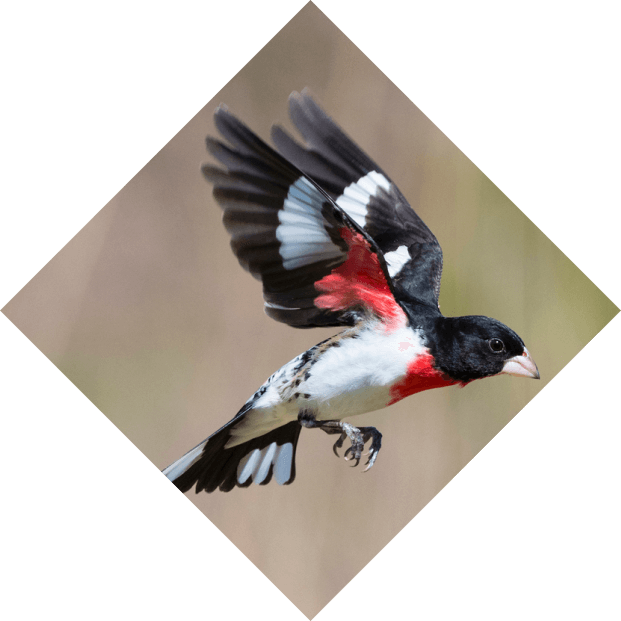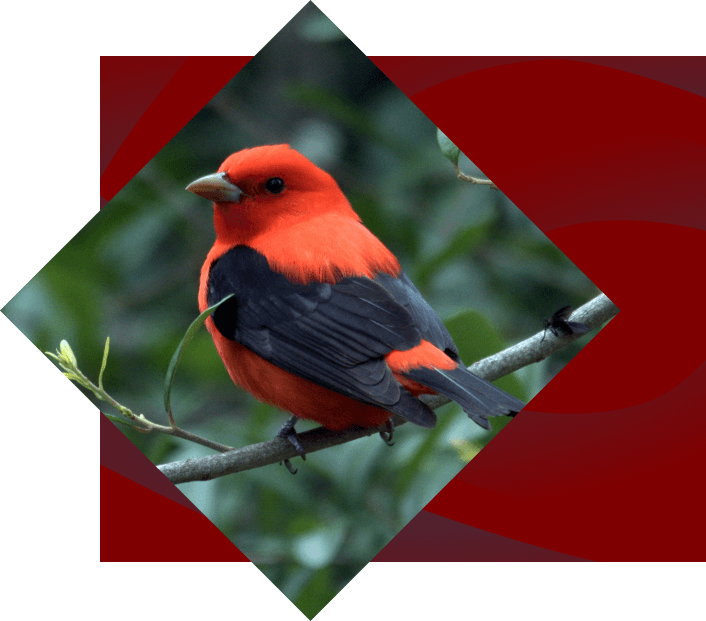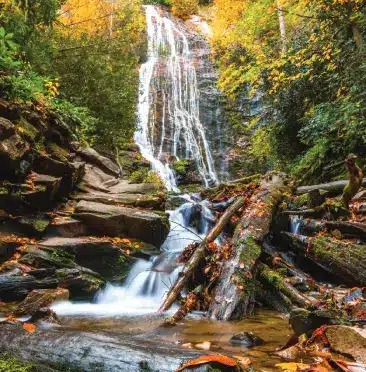Birding in Cherokee

a vacation for a song
Some of the best shows are completely free. This performance includes colorful, elaborate costumes, starlets, intricate songs, and a story of survival. These performers are the birds of Cherokee. Twitter, be gone. Here, you’ve got the real music.
Visit Cherokee and Experience the Best Birding in North Carolina
Cherokee, North Carolina is nestled in the Great Smoky Mountains and is home to wide variety of wildlife, plant life, and birds. Bird watching enthusiasts are sure to discover incredible diversity and beauty while hiking in the NC mountains. Hikes can range from long to short and from strenuous to easy so birding is accessible to all age groups. The key is to bring your patience and your binoculars so you can mark some of the area’s most gorgeous species off your checklist.

A bird watching paradise
Birding experts name Western North Carolina, and Cherokee specifically, one of the best spots for bird watching in the southeastern United States.
You don’t have to be an ornithologist to relish the joy of spotting a Pileated Woodpecker drilling for a meal in a tree. From tranquil forest coves to teeming river and stream habitats, Cherokee is a veritable one-stop shop for earnest birders.
What Makes Birding in Cherokee NC Special?
According to the National Park Service, there are approximately 240 different kinds of birds living in the Great Smoky Mountains National Park. Approximately 60 varying species live in the area all year and approximately 120 visit the park in order to breed. Every season and elevation attracts different types of birds so bird watchers can expect to have a unique experience based on where they are in the mountains and whether they visit in winter, spring, summer, or fall. Many bird lovers claim that from late April to late May is the most active time for birds inside the national park and in surrounding towns like Cherokee. Be sure and look for the Wood Thrush, Louisiana Water Thrush, Scarlet Tanager, Rose-breasted Grosbeak, Red Crossbill, Pine Siskin, Ruby-throated Hummingbird, Hooded Warbler, Spotted Sandpiper, Indigo Bunting, and the Kingfisher just to name a few.
A different kind of musical.
Every May, migratory birds return from South America and begin building their ever-growing symphony throughout the Smoky Mountains. Occupying the stage of this Appalachian orchestra is a staggering array of birds—the Wood Thrush, Louisiana Water Thrush, Scarlet Tanager, Rose-breasted Grosbeak, Red Crossbill, Pine Siskin, Ruby-throated Hummingbird, Hooded Warbler, Spotted Sandpiper, Indigo Bunting, and many more.
The National Park Service Birding Checklist
If you are planning a trip to Cherokee and the Great Smoky National Park, you can access a special birding checklist provided by the National Park Service. Keep track of which species you spot on your hikes in the mountains, and don’t forget to bring your bird book so you can confirm and make proper identifications.


The Most Popular NC Birding Trails in Cherokee
The Great Smoky Mountains are an exceptional place to go bird watching any time of year, but there are two popular birding trails in Cherokee. The first is the Nunadyeli Trail that runs from the Museum of the Cherokee Indian parking lot to the breathtaking Unto These Hills Mountainside Theatre. The second is a special place, one that has been sacred to the Cherokee for thousands of years, called the Kituwah Mound. Located near a fork in the Tuckasegee River, Kituwah Mound is considered mother town of the Cherokee people. Known as the spiritual center of Cherokee culture, an empire that stretched through 140,000 square miles in North Carolina, Tennessee, Georgia, Virginia, and beyond, Kituwah Mound was the home of the Cherokee council house. Many archeologists believe that Kituwah Mound has been inhabited for around ten thousand years. The town was destroyed in 1776 during the Rutherford Expedition. If you are visiting Cherokee, stop by both of these NC birding trails and enjoy the wonders the mountain forests have to offer.
SPOT A Cherokee Legend
Maybe you’ll spot the Kingfisher, who according to Cherokee legend got its sharp bill after the animals fashioned a fishgig on his beak to help him catch fish. What makes birding in Cherokee so much fun is learning about these old bird stories as you spot the birds amid the trees.
Who do you think won the race between the hummingbird and the crane to win the beautiful woman’s heart? We don’t want to spoil the end, so come see for yourself.
Stay and play
Each place you visit in Cherokee pulses with the stories and significance of a people whose roots run deep and whose ancient wisdom is fascinating to uncover. Nestled in the lush landscapes of Western North Carolina, Cherokee invites you to smell the wood smoke and open your ears. If you listen closely, maybe you can hear the chanting of the little Nunnehi people of the mountain peaks. No need to resist Cherokee’s invitations to dive right in. Fire off a blowgun if you dare, but make sure your spouse is in the clear. As you cast your line into the trout-filled rivers or wash your face in the sweet spray of a waterfall, let the powerful feelings of Cherokee carry you. Even if it’s just for a day or two.


















